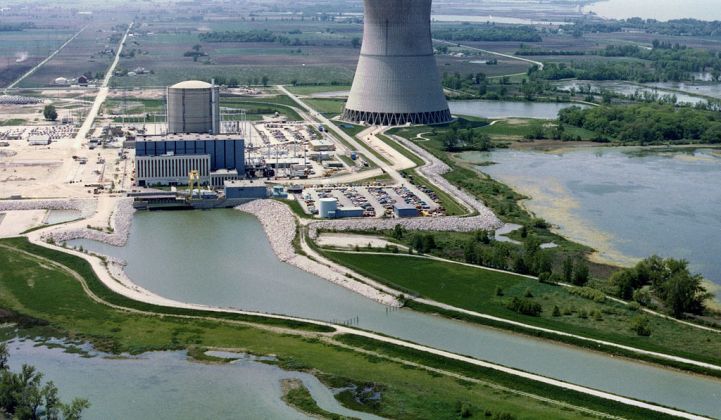FirstEnergy Corp.’s board of directors has terminated CEO Charles Jones and two other senior executives, saying in a Thursday statement that an internal review committee determined the three “violated certain FirstEnergy policies and its code of conduct.”
The move comes as the Ohio utility continues to face intense scrutiny over its links to a federal corruption and racketeering investigation tied to last year’s passage of House Bill 6. The law directs more than $1 billion in state subsidies to nuclear power plants owned by former FirstEnergy subsidiary FirstEnergy Solutions.
HB 6, passed last year by the state’s Republican-controlled legislature, provides ratepayer subsidies to support Energy Harbor’s Davis-Besse and Perry nuclear power plants, which the company had threatened to close if state support for their continued operation failed to materialize. FirstEnergy Solutions filed for Chapter 11 bankruptcy protection in 2018 and emerged from bankruptcy this February under the new name Energy Harbor.
In July, Ohio House Speaker Larry Householder and four associates were arrested on federal charges of conspiring to direct $61 million toward efforts first to pass the law and then to defend it against a popular referendum to overturn it. Earlier this week, two of those associates pleaded guilty to a single count of racketeering conspiracy charges in exchange for an agreement to cooperate with federal prosecutors in the case.
Charges have not been filed against FirstEnergy or its executives, and the company has not been directly named as a target of the investigation. But federal prosecutors have made it clear that the utility and its affiliates are believed to be the source of $61 million funneled through a nonprofit group to maintain the alleged criminal conspiracy.
Along with Jones, FirstEnergy’s board fired Dennis Chack, senior vice president of marketing, and Mike Dowling, senior vice president of external affairs, effective immediately. The company has declined requests for further comment.
Jones has denied that he participated in or was aware of the bribery scheme alleged by federal investigators. “At no time does our support for nuclear plants in Ohio interfere [with] or supersede our ethical obligations to conduct our business properly,” he said during the company’s second-quarter earnings conference call in July. “The facts will become clear as the investigation progresses, and we support bringing the facts forward.”
In that call, Jones also responded to questions regarding the 81-page affidavit filed by the U.S. Attorney’s Office of the Southern District of Ohio, which stated that Householder had 84 phone contacts with FirstEnergy’s CEO from February 2017 to July 2019. “I can tell you this, in every meeting, every phone call, every text message that I participate in, I talked about our obligations to conduct our business transparently, ethically, professionally,” he said.
The bribery investigation has thrown the future of HB 6 into question. Opponents of the bill’s provisions to reduce Ohio’s existing energy efficiency and renewable energy incentives and pay for subsidies of nuclear and coal plants have demanded its repeal, a call that’s been echoed by state lawmakers and officials including Republican Gov. Mike DeWine. But the state legislature has yet to act on any of the bills introduced to replace it.
FirstEnergy named company President Steven Strah as Acting CEO to replace Jones, and board member Christopher D. Pappas as executive director.



